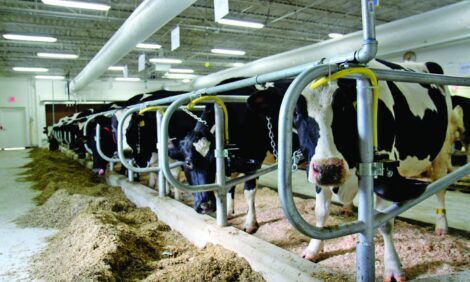



More Transparency Needed in Supply Chain to Create Fairness
ANALYSIS - More needs to be done to ensure more transparency in the supply chain in the UK to produce greater fairness for farmers, processors and retailers.The grocery codes adjudicator needs more powers to ensure that voluntary codes in place with the processing sector at present are enforced.
And there needs to be more openness from the retail sector over their own needs, the requirements of the consumer and the demands of the market to allow farmers to produce the products that are required.
Speaking at the Westminster Food and Nutrition Forum Keynote Seminar on the Priorities for the UK Supply Chain and the Grocery Codes Adjudicator, Ruth Mason, the chief food chain advisor with the National Farmers’ Union said that there needs to be more transparency in the supply chain to help farmers overcome the increasing volatility they are facing.
She said that farmers in the UK are facing unusual market conditions with pig, dairy and wheat prices having fallen by more than 30 per cent each over the last two years.
She added that as the industry moves further and further away from the support mechanisms, the volatility in the market is likely to increase.
However, Ms Mason said that the ability of farmers to produce what the market demanded was hindered because they were not informed by the retailers about the volumes of product that would be required and where and when the products are required.
Farmers also had no idea of the price that they would be receiving for their produce.
She stressed that there are three key areas that need to be addressed – transparency over volumes, transparency over where and when products are required and transparency over price.
She said the farmer, processor and retailer need to be working together.
“We need a fair trading relationship,” Ms Mason told the seminar.
She said there have to be some parameters for farmers to work in and they must be given they tools to supply the market needs – to supply the goods that the consumers will want and the retailers will sell.
She said that some form of more formal code with the processing sector needed to be instituted to help farmers meet the supply chain needs.
And she added that in the poultry and horticulture sectors where the farmers are closer to the customer in the supply chain there have been good changes, but these need to be repeated in other parts of the food supply chain.
David Lowe, a solicitor with Gowling WLG, said that the grocery code adjudicator had made a real difference to the supply chain, particularly in changing payment practices and demands.
However, he said that because the suppliers do not know what they will be paid several years down the line, they have no incentive to invest and the suppliers also have concerns that they will be squeezed on both sides by the demands of the retailer and the needs of the farmer.
Jack Ward, the chief executive of the British Growers Association told the seminar that the processors, suppliers and retailers did not take into account the unforeseen challenges to farmers and growers such as weather conditions that change the availability and the volumes of produce.
“There is a gap between the realities of growing produce and the expectations of the supply chain,” he said.
“All sections of the supply chain need to be working together.”
Jan Godsell, professor of operations and supply chain strategy at the University of Warwick said that it was necessary for the different partners in the supply chain to work together for the common good.
And she hit out at some promotion practices for not taking into account the seasonality of produce and for creating false spikes in trade.
On the international markets, Tom Wills the policy officer at Traidcraft said that more needed to be done to prevent unfair trading practices around the world that highlighted other issues such as working conditions, and the needless production of food waste, because of the changes in the demands of the suppliers and retailers.
The Grocery Code Adjudication, Christine Tacon said that the last survey of trading relationships and the supply chain had shown there were nine per cent fewer complaints about retail bad practice and supply chain issues in 2014.
She said that in the first year of the Grocery Codes Adjudicator eight out of 10 suppliers felt there had been breaches of the code, where as last year the number had fallen to seven out of 10.
She said that there has been success in tackling issues of forensic auditing, incidents of “drop and drive” where the way deliveries are made and recorded had allowed retailers to dispute the quantities delivered. She said there had also been progress in the way consumer and producer complaints were being handled.
She said there has also been an improvement in suppliers being able to get money back and a reduction in the delays in payments to suppliers by retailers.
She said the role of the adjudicator is being reviewed and there are calls for the remit to be extended.
At present, the adjudicator vets the actions of the 10 major supermarkets, each with a turnover of more than £1 billion, but she questions whether it would be feasible for also extend the role to cover the 8,000 supermarket suppliers fully.
She said the present role of the adjudication does not cover farmers and the main concerns of the farmers are over prices.
However, she said that if the role was extended to cover the farming community, she doubted whether pricing would also be covered. This, she said, was the role of the markets and competitions authority.
She said the role of the adjudicator was “to tread the fine line between fairness and not affecting the free market”.
The results of the current survey of the way the grocery code is being implemented, which is currently be conducted, will be announced in June.



